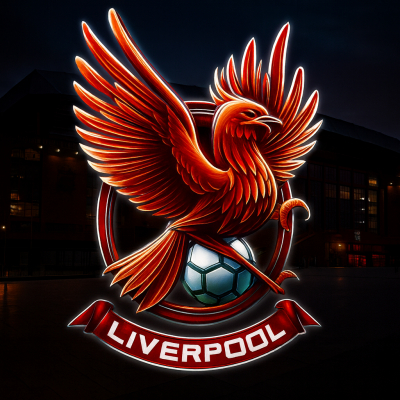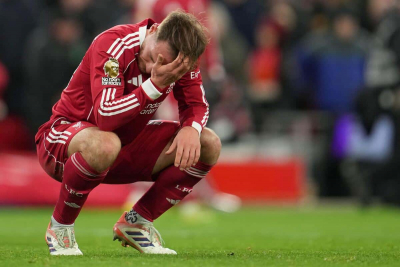Football News: Former Liverpool Managers - Part 8 - Captain Turned Manager
Image from: freelargeimages.com
Former Liverpool Managers - Part 8 - Captain Turned Manager
Phil Taylor May 1956 - 17th November 1959
Philip Henry Taylor was born in Bristol and came through the youth ranks with local club Bristol Rovers as an inside-forward, captaining England schoolboys before reaching the first team as a teenager. It was not long before he was snapped up by then Liverpool manager George Patterson for £5000 + Ted Hartill in March and he made a goal-scoring debut against Derby County in a 2-2 draw. His dad was given £150 by LFC when he was signed and that bought their terraced house in Bristol.
George Kay converted him to a wing-half and he became a stylish, composed defender, but he could have become a cricketer instead. In fact he played one game of first class cricket for Gloucestershire's first team in 1938. The war disrupted his career and he served in the 9th King's Regiment, guesting for Brighton & Hove Albion, Newcastle United and Leeds United before the end of the war saw him return to Liverpool.
He reached the peak of his career in the early post-war years, being a major part of Liverpool's title-winning team in the 1946-47 season, and winning 3 England caps the following season. Taylor was handed the captaincy for the 1949-50 season and led the team to the 1950 FA Cup final, where they lost 2-0 to Arsenal. His career, like Liverpool's team, was in decline after that and he retired in 1954, joining the backroom staff as a coach.
"When I first played for Liverpool we didn't even have our own training ground, because the club didn't buy Melwood from St Francis Xavier School until the early fifties. Most of our training on Tuesday, Wednesday and Thursday consisted of running with virtually no work on individual skills or team tactics at all. I think a modern player would have ten fits wearing the kind of boots we wore. Ours were so heavy, with solid toecaps that could murder you if you were kicked. I can remember sitting with my boots in a tub of water, so they would shrink to my feet." - Phil Taylor
In May 1956, Don Welsh was sacked and Taylor was appointed. However it showed exactly what the board wanted from him and why he was chosen when they described him as a 'liaison man' in the dressing room, rather than as a manager. Not only were his powers reduced from those Welsh had been given previously, his wages were £12 a week less than Welsh at £18 a week. The board also announced that they reserved the power to have "the final say in all matters of importance affecting the success and well-being of the club". In essence, Taylor was to be a yes man.
The board did put in some investment as they spent £140 on a 'shooting box', while another £400 was splashed out on a short-wave therapy machine to treat players' injuries. They also had a 4 yard wide cinder track laid at Melwood to be used for speed training. Despite the new equipment the team were still unable to win a return back to the top flight, finishing 3rd in Taylor's first season, the 1956-57 one.
The second season started off in acrimony as the players decided to protest against the maximum wage of £17 a week, which was imposed on all footballers in England at the time, by refusing to pose for pre-season photographs unless paid extra for doing them. They were quickly brought in line and the season commenced much as the previous one, with Billy Liddell still key, though Jimmy Melia was now top scorer. There was more important matters intruding in February 1958, as, in the aftermath of the Munich Disaster Liverpool offered to loan players to Manchester United to help them fulfil their fixtures that season. Liverpool finished the season in 4th, still outside the promotion places.
Trouble hit in October of the following season as a certain Bill Shankly-led Huddersfield Town thrashed Liverpool 5-0. That result led to the board holding a secret emergency meeting. There the board made a number of decisions that had a long-lasting impact on the club's future, as they decided the club needed more discipline, more experienced coaching support and even discussed a managerial change, though that was put aside for now. Bill Nicholson was the first choice to be the new chief coach, but he decided to take the manager's job at Tottenham Hotspur instead. Instead the club returned to its old recruiting grounds in Scotland and appointed a man believed to be the best coach in Scotland, Reuben Bennett as new chief coach, in place of Albert Shelley, who was demoted to look after the treatment room and store.
Bennett was very much of the old school in his approach, he insisted training grazes could be best be dealt with by cleaning them with a Brillo Pad and that bruises could be helped to heal by rubbing a kipper on them. Bob Paisley was promoted to become first team trainer in Shelley's place. This was done without Taylor's knowledge and his role in coaching players was much reduced. Despite all this Liverpool won eight straight league wins after the defeat by Huddersfield, lifting the team from mid-table to 2 in the league by January.
The FA Cup 3rd Round saw them matched up against non-league Worcester City, with the match originally scheduled for 8th January 1959, but the game was postponed for a week due to a frozen pitch. On the 15th, despite the Liverpool Echo describing the sloping Worcester pitch as "like iron, a bare,brown board of a surface", and snow, fog and freezing conditions besetting the area, the referee, Leslie Tirebuck had declared the pitch playable. Worcester officials had spread 11 and a half tons of salt on the pitch in order to get the go ahead and it was worth the effort for them as they won 2-1. It was the worst defeat in Liverpool's history.
The summer was a good time for the Reds as club scout Bill Jones stumble across future World Cup winner Roger Hunt who signed on a free from Stockton Heath on 29th July 1959. There was more good news as the board reported a profit of £3,178. That was tinged with disappointment as they revealed that they offered "an open cheque for the best player in Britain but his club would not accept it". That is believed to have been an offer of £40,000 to Middlesbrough for Brian Clough.
Hunt was an instant success, scoring 4 in his first 5 games, but it was not enough as the team were 9 points behind Division 2 leaders Aston Villa following a 1-1 draw with Portsmouth in October. With gates dropping and the fans unhappy, the board tried to get the fans on side with the signing of Everton fan favourite Dave Hickson. The 29 year old had become disillusioned with life at Everton saying he was "not in love with playing for Everton any more" as manager Johnny Carey kept taking him in and out of the team. Hickson was erratic and wanted to stay in the city, to the disgust and horror of Evertonians he swapped blue for red and joined Liverpool for £12,000.
He gave the team a lift, crowds rose for his debut against league leaders Aston Villa and Liverpool won 2-1 thanks to his two debut goals. Hickson was inconsistent and Liverpool could not maintain their form and Taylor said: "The strain of trying to win promotion has proved too much," as he announced he resignation. Taylor spoke to the Liverpool Echo and said: "No matter how great has been the disappointment of the directors at our failure to win our way back to the First Division, it has not been greater than mine. I made it my goal. I set my heart on it and strove for it with all the energy I could muster. Such striving has not been enough and now the time has come to hand over to someone else to see if they can do better."
Liverpool had won just 6 of their 17 league games when Taylor resigned in November, as the only Liverpool manager to not manage LFC in the top flight. He left behind a backroom team which consisted of Reuben Bennett, Joe Fagan and Bob Paisley, the future pillars of the club's success over the next 3 decades. Taylor, while he failed to win promotion, did have to compete with his hands tied behind his back by the board, who were interested in profit margins rather than on-pitch success.
Taylor said much later, in 2003: "Looking back, one of the biggest differences with today was the position of the manager. At that time, teams at almost all clubs were picked by the board of directors, though they usually did ask the advice of the secretary or coach. I know both Don Welsh and myself had to present our teams to full board meetings, often involving eight or nine directors. If you had been winning, the directors were unlikely to object to your team, but it was much harder when you wanted to make changes, and I can remember times when the side that ran out was not really the one I had wanted to play. I was probably not a strong enough personality to be a good manager, because you really need to insist on being in charge if you are going to be successful."
After leaving Liverpool Taylor worked as a sales rep for Pembroke Promotions right up until his retirement at the age of 65. He was never to work in football again. He eventually passed away on 1st December 2012 at the grand old age of 95.
To read Part 7 - The Clown Prince please click HERE
Written by Tris Burke April 21 2019 10:46:03
Discuss rumours and transfers on our Arsenal rumours web page
Discuss rumours and transfers on our Aston Villa rumours web page
Discuss rumours and transfers on our Newcastle United rumours web page
Discuss rumours and transfers on our Manchester United rumours web page
Discuss rumours and transfers on our Liverpool rumours web page
Discuss rumours and transfers on our Everton rumours web page
Discuss rumours and transfers on our Leeds United rumours web page
Discuss rumours and transfers on our Tottenham Hotspur rumours web page
Discuss rumours and transfers on our cricket rumours web page


